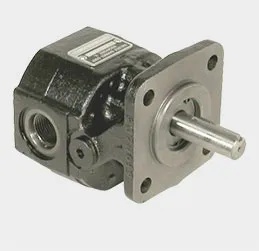Precision Control in Solenoid Valve Technology for Enhanced Performance and Efficiency
Understanding Precision Solenoid Valves An Overview
Precision solenoid valves are essential components in various industrial applications, providing reliable control of fluid flow in an efficient manner. These valves operate based on the principles of electromagnetism, which enables them to switch between open and closed states rapidly. This article delves into the functionality, applications, advantages, and key considerations when selecting precision solenoid valves for various uses.
What are Precision Solenoid Valves?
Precision solenoid valves are specifically designed to offer accurate control over the flow of liquids and gases. They consist of a coil, a plunger, and a valve body. When an electric current passes through the coil, it generates a magnetic field that moves the plunger. This movement either opens or closes the valve, allowing or stopping the flow of the medium. The precision of these valves is dictated by their construction, materials, and design, which are all aimed at achieving quick response times and tight sealing capabilities.
Key Features
1. Fast Response Time These valves can activate and deactivate quickly, providing nearly instantaneous control over the flow. This characteristic is particularly crucial in applications where timing is critical. 2. High Accuracy Precision solenoid valves are designed to provide exact flow rates. This accuracy is vital in processes that require precise measurements, such as in pharmaceutical and chemical industries.
3. Durability Built using high-quality materials, precision solenoid valves can withstand harsh operational conditions, including extreme temperatures and high pressures. The robust construction contributes to a longer service life.
4. Compact Design Many precision solenoid valves have a compact design, making them suitable for installation in tight spaces without compromising performance.
5. Energy Efficiency Unlike traditional valves that may require constant manual adjustment, precision solenoid valves operate electronically, optimizing energy usage and reducing operational costs.
Applications
Precision solenoid valves find applications in various sectors, such as
- Automation and Control Systems In automated systems, these valves control fluid movements precisely, ensuring efficient operation of machinery.
- Medical Equipment Precision valves are vital in devices like ventilators and infusion pumps, where the accurate delivery of fluids is necessary.
- Aerospace and Defense In these industries, solenoid valves are used to manage hydraulic systems and control fuel flow in engines, requiring both precision and reliability.
- Water Treatment Solenoid valves regulate water flow in treatment plants, ensuring that processes such as filtration and chemical dosing occur accurately
.precision solenoid valve

- HVAC Systems They are used to control heating, cooling, and ventilation systems by managing the flow of refrigerants or air.
Advantages of Using Precision Solenoid Valves
1. Improved Control The ability to control flow with precision enhances process efficiency and product quality.
2. Reduced Maintenance High-quality solenoid valves require less maintenance due to their durability and reliability, leading to decreased downtime.
3. Enhanced Safety Precision valves offer better control, reducing the risk of leaks or failures that could lead to dangerous situations.
4. Versatility Available in various sizes, materials, and configurations, precision solenoid valves can be customized for specific applications.
Key Considerations When Selecting Precision Solenoid Valves
- Application Requirements Understanding the specific needs of the application, such as flow rate, pressure, and medium type, is crucial for selecting the right valve.
- Environmental Conditions The operating environment, including temperature extremes and the presence of corrosive substances, influences valve selection.
- Electrical Specifications Ensure the electrical requirements match your system’s specifications, including voltage and current ratings.
- Size and Port Configuration Selecting the appropriate valve size and port configuration ensures compatibility with existing piping systems.
- Certifications and Standards Depending on the application, it may be necessary to choose valves that meet specific industry standards and certifications for safety and reliability.
Conclusion
Precision solenoid valves are vital components in modern industries, offering accurate and efficient control of fluid flow. Their ability to operate quickly and reliably makes them indispensable in various fields, particularly where precision is essential. When selecting a precision solenoid valve, it is crucial to consider the specific application requirements and environmental factors to ensure optimal performance and longevity. By understanding these aspects, engineers and technicians can enhance their systems' efficiency and reliability, paving the way for innovative solutions in automation and control.
-
Aluminium Pressure Die Casting High-Precision & Durable Solutions for Complex PartsNewsJul.08,2025
-
Top Aluminum Sand Castings Manufacturer – Precision Green Sand Castings for Industrial NeedsNewsJul.08,2025
-
Precision Lost Wax Casting Quotes – High Accuracy Custom Parts Lost Wax Precision Casting ServicesNewsJul.07,2025
-
High-Quality Sand Used for Casting - Superior Sand for Sand Casting ProcessesNewsJul.07,2025
-
China Supply High End Metal Stamping Parts Sino - Precision Manufacturing FactoryNewsJul.06,2025
-
High-Quality Automotive Investment Casting Services Precision & Sand Casting SolutionsNewsJul.06,2025















